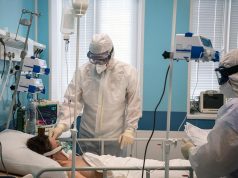Effectiveness seen for RSV lower respiratory tract disease, hospitalized RSV lower respiratory tract disease, PCR-confirmed RSV
By Elana Gotkine HealthDay Reporter
WEDNESDAY, July 30, 2025 (HealthDay News) — Nirsevimab is effective for protecting infants against respiratory syncytial virus (RSV)-associated lower respiratory tract disease (LRTD), according to a study published online July 22 in Pediatrics.
Amber Hsiao, Ph.D., M.P.H., from the Kaiser Permanente Vaccine Study Center in Oakland, California, and colleagues examined nirsevimab effectiveness against polymerase chain reaction (PCR)-confirmed RSV LRTD and RSV-associated health care utilization during the 2023 to 2024 RSV season at Kaiser Permanente Northern California.
The study included 31,900 infants, 49.1 percent of whom received nirsevimab. The researchers identified 35 and 462 RSV LRTD episodes among nirsevimab-immunized infants and nonimmunized infants (6.10 and 58.51/1,000 person-years, respectively). Nirsevimab effectiveness was 87.2, 98.0, and 71.0 percent against RSV LRTD, hospitalized RSV LRTD, and PCR-confirmed RSV, respectively. Fewer encounters (adjusted means difference, −0.86) and lower odds of hospitalization (odds ratio, 0.11) were seen for nirsevimab-immunized infants with RSV LRTD than nonimmunized infants.
“These findings support the Advisory Committee on Immunization Practice’s recommendation for eligible infants aged <8 months entering their first RSV season to receive nirsevimab to reduce the risk of RSV infection,” the authors write.
The study was funded by Sanofi, the manufacturer of nirsevimab.
Copyright © 2025 HealthDay. All rights reserved.








